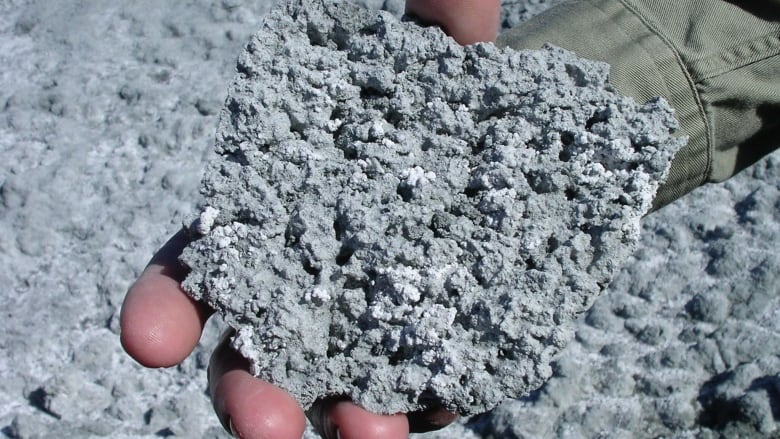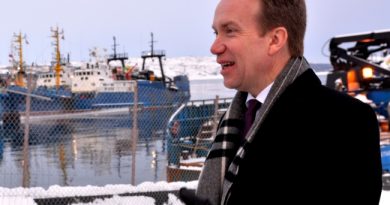Canada announces $2M for research into carbon neutral mining in the Northwest Territories

The Canadian government is investing millions in a Northwest Territories-based research project that has the potential to make some mining operations carbon neutral.
Greg Dipple, a professor of geology at the University of British Columbia, has been working with three other universities and three mining companies, among other groups, to use tailings from mining operations to strip carbon dioxide from the air and convert it to a stable mineral form, trapped in cement-like rock.
“It’s essentially the acceleration of a natural process called chemical weathering,” said Dipple.
“The difference here is … we can do it in a timescale of minutes to hours to days to weeks rather than hundreds or millions of years.”
N.W.T. MP Michael McLeod was in Yellowknife Tuesday on behalf of Natural Resources Minister Amarjeet Sohi, to announce $2 million for the research, which will be conducted at the Gahcho Kue diamond mine, as well as at a nickel mine in B.C.
Dipple says about 15 years ago, scientists had the idea to accelerate this process using industrial chemical reactors. This project gave Dipple the idea to check out existing waste from past mines rather than building a big reactor to do the job.
“We found [those tailings] undergoing reactions on their own,” he said. “So since then the research has focused on understanding why it’s happening, what rate it’s happening at, what limits that rate and coming up with approaching to overcome those rate limitations so it goes even faster.”
Dipple says the capacity of these tailings to absorb carbon dioxide typically exceeds mine emissions tenfold, which could make the creation of the world’s first carbon-neutral mining operation an achievable goal.
He says Gahcho Kue is an ideal location for this type of research because the mine uses diesel as a power source.
“That’s one of the technologies we want to develop,” said Dipple. “Can we use this to capture and store the CO2 emissions associated with electricity generation? The remote mines that have that power generation on site provide that opportunity.”
Other investments
During the announcement, McLeod also announced funding for four other projects across the territory:
- $640,000 so Aklavik can install a biomass heating system that will power the community, as well as $200,000 for energy efficiency upgrades to the community.
- $400,000 to Denesoline Corp. Ltd. to complete a study on hybrid renewable energy options for Lustel K’e Dene First Nation.
- $380,000 for the Centre for Indigenous Resources to improve energy literacy for Indigenous women and youth.
- $229,000 to the Rat River Development Corporation for a feasibility study into a potential biomass boiler that could add to the community’s heating system.
With files from Emily Blake
Related stories from around the North:
Canada: Mining boom to drive economic growth in northern territories beyond rest of Canada, report says, CBC News
Finland: Gold mine in southern Finland to shut down after court denies appeal, Yle News
Norway: Minister downplays environmental impact of planned mine in Arctic Norway, The Independent Barents Observer
Russia: Business is good for Russian nickel giant Nornickel, The Independent Barents Observer
Sweden: Iron mine in northern Sweden to restart production, The Independent Barents Observer
United States: Environmental Protection Agency criticism of projected Pebble Mine ‘substantial’, says Alaska’s senator Murkowski, Alaska Public Media



